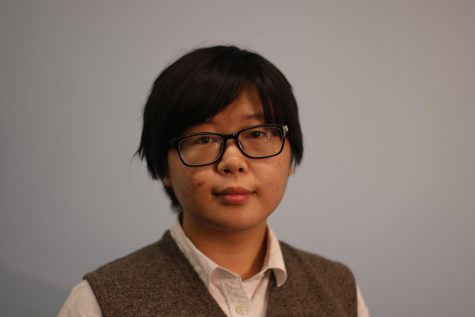Kim: How it feels to get help
November 2, 2018
I fell into a major depressive episode last Saturday.
Over that week, I had been interacting with so many people and doing so much work that the stress became overwhelming. But I continued to force myself to do more work: volunteering, attending class and helping with events. By Tuesday, I could not stomach it anymore. I felt so incomplete and empty that even saying “hello” to the bus driver was draining. I wasn’t sad, I was unemotive and unresponsive. So I skipped class on Tuesday.
I sent an email to my English professor shortly before class started. I tried my best to get dressed and clean, and then I went to the University Health & Counseling Services office. Located in the basement of Sears, it was inconspicuous and close enough to other classes that I didn’t feel awkward going. I had been to Counseling Services once before, but maybe I did not click with the therapist then because I never wanted to return until now when I felt I had no other option.
It was too early to call my friends or my siblings, who would be in class, sleeping or at work. After filling out a few forms for privacy, my mental health history and my current state, I was able to meet with a counselor.
She led me down the hallway into a cozy room and invited me to sit on the couch. There were at least two tissue boxes in the room within easy reach. She started asking questions based on my survey results, and though I started out stoic, I began to cry. It was the cathartic sort of tears, and for the first time since Saturday, I felt actual emotions. Afterward, she assigned me some “homework”—to eat food and fill out a few pages of a self care index. The entire process took about an hour, and I left feeling a bit more human.
Following that, I sent a text to two of my close friends, looking for validation and also wanting to tell them I was struggling without actually saying that I was struggling. I texted, “I went to health counseling services today. Praise me,” and they responded with “Congrats” and “You are a good bean.” Their positive responses helped, a lot.
I went to get comfort food at UPB: Thwing Tuesday, which served several variations of pasta. I went to the Flora Stone Mather Women’s Center and began to be productive again in a quiet and friendly environment. Later, my professor emailed me back with condolences and offers of help.
The bottom line is that most people aren’t terrible. When you reach out for help, they understand and respond. Nobody thought I was pathetic or judged me. Stigma and fear can stop people from getting help, but it really shouldn’t. I have an appointment next week with the same counselor, and I think I’ll be alright.
Won Hee Kim is a struggling third-year English major.


